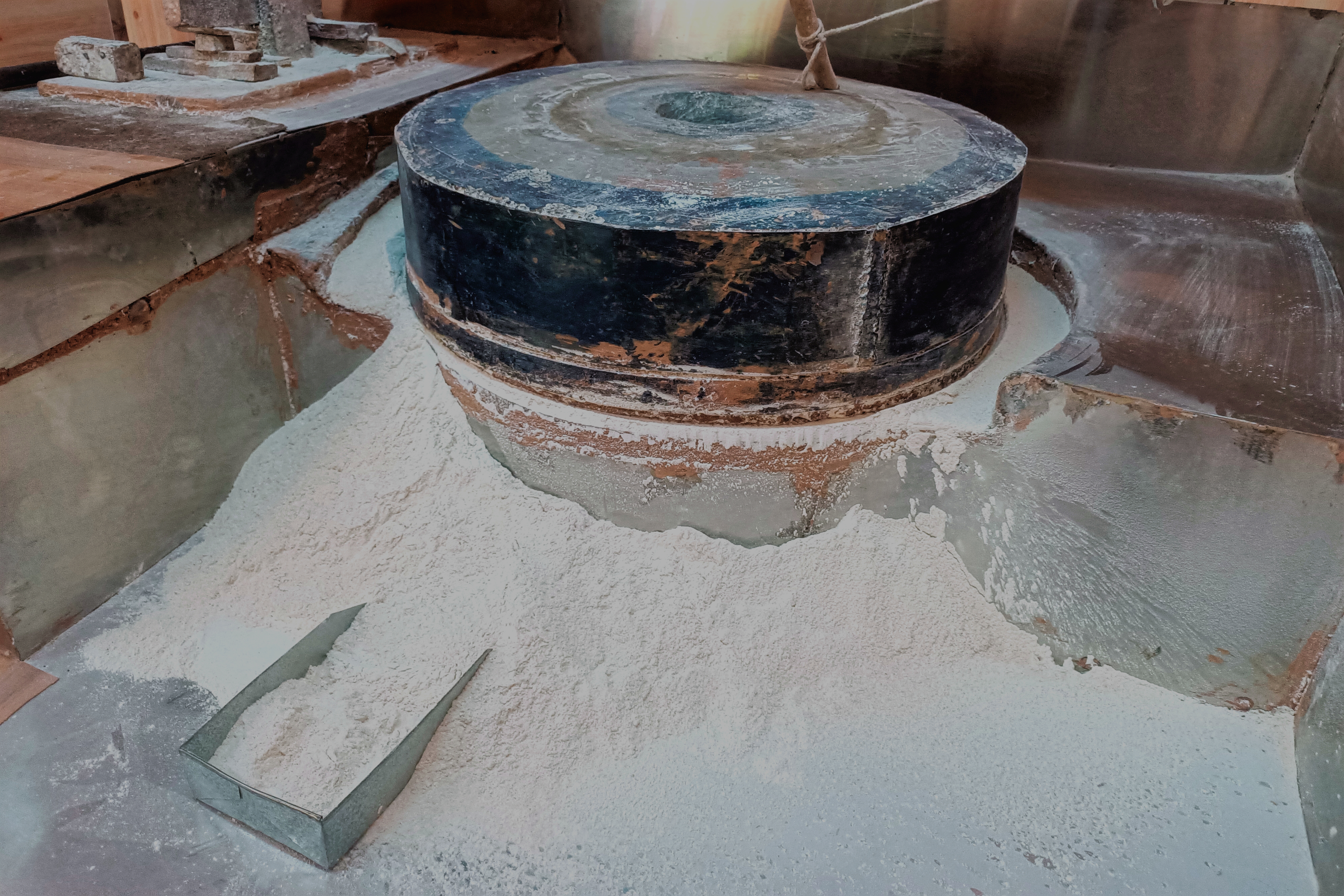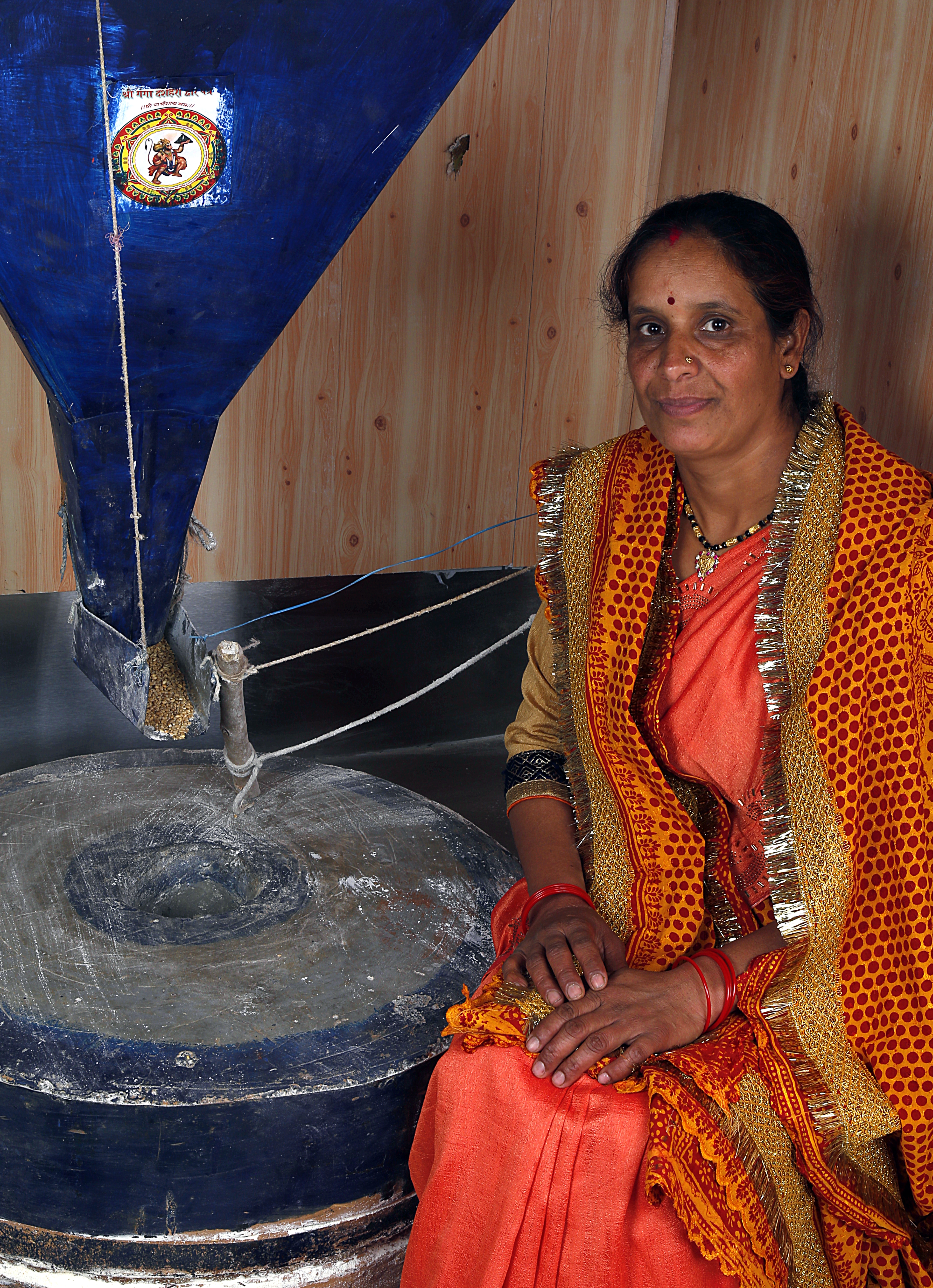KB Chiya Panchakki Nirmit Aata
Traditional watermills have existed in the Himalayan region and northern plains of India since 4 th century AD and were used for grinding grains/spices and cattle feed in rural areas. These mills look like a small structure generally constructed near a village stream and are powered by the flowing water drawn through a narrow channel from cascading mountain stream, river or irrigation canal.
Climate change has led to the closure and abandonment of large number of mills due to streams and springs drying up, and occasional flash flooding. Arrival of grid power and diesel engines in the villages further made usage of watermills limited.

Traditional watermills (locally known as panchakki, gharat, ghat, ghatta) are still popular as people prefer grains ground by these mills. Slow revolving grinding stones which prevent heating up of flour due to water flowing underground helps in retaining flavour, aroma and nutrients of the cereal. These traditional watermills, though low in efficiency, have proven to be the best examples of clean energy generation at small scale.
Health Benefits of Whole Wheat Aata
Whole grains have been a part of the human diet for tens of thousands of years. While a high
intake of refined grains is linked to health problems like obesity and inflammation, whole grains
are a different story.
In fact, eating whole grains is associated with various benefits, including a lower risk of diabetes,
heart disease, and high blood pressure.
- Good for bones : Since whole wheat flour is rich in phosphorous which is a major mineral which works closely with calcium to build our bones.
- Carbohydrates metabolism : Whole wheat is rich in Vitamin B1 which is essential for glucose metabolism.
- Good for brain : Niacin present in whole wheat is good for brain functioning and improving mental health.
- Whole wheat flour and protein : Eating 8 whole wheat rotis a day will give you 23% of our daily protein requirement.
- Good for skin : Zinc helps repair skin and slows the ageing process.
- Good for eyes : Zinc helps in activity of enzyme in our body that helps produce vitamin A, which is helpful in treating night blindness.
- Provides energy : Vitamin B2 enables development and maintenance of RBCs (more RBCs mean more energy.
When you purchase processed whole-grain products, read the ingredient list to make sure they’re made entirely from whole grains, not a mixture of whole and refined grains. Also, keep an eye on the sugar content, especially in the case of breakfast cereals, which are often loaded with added sugar. Seeing “whole grain” on the packaging does not automatically mean that the product is healthy.



